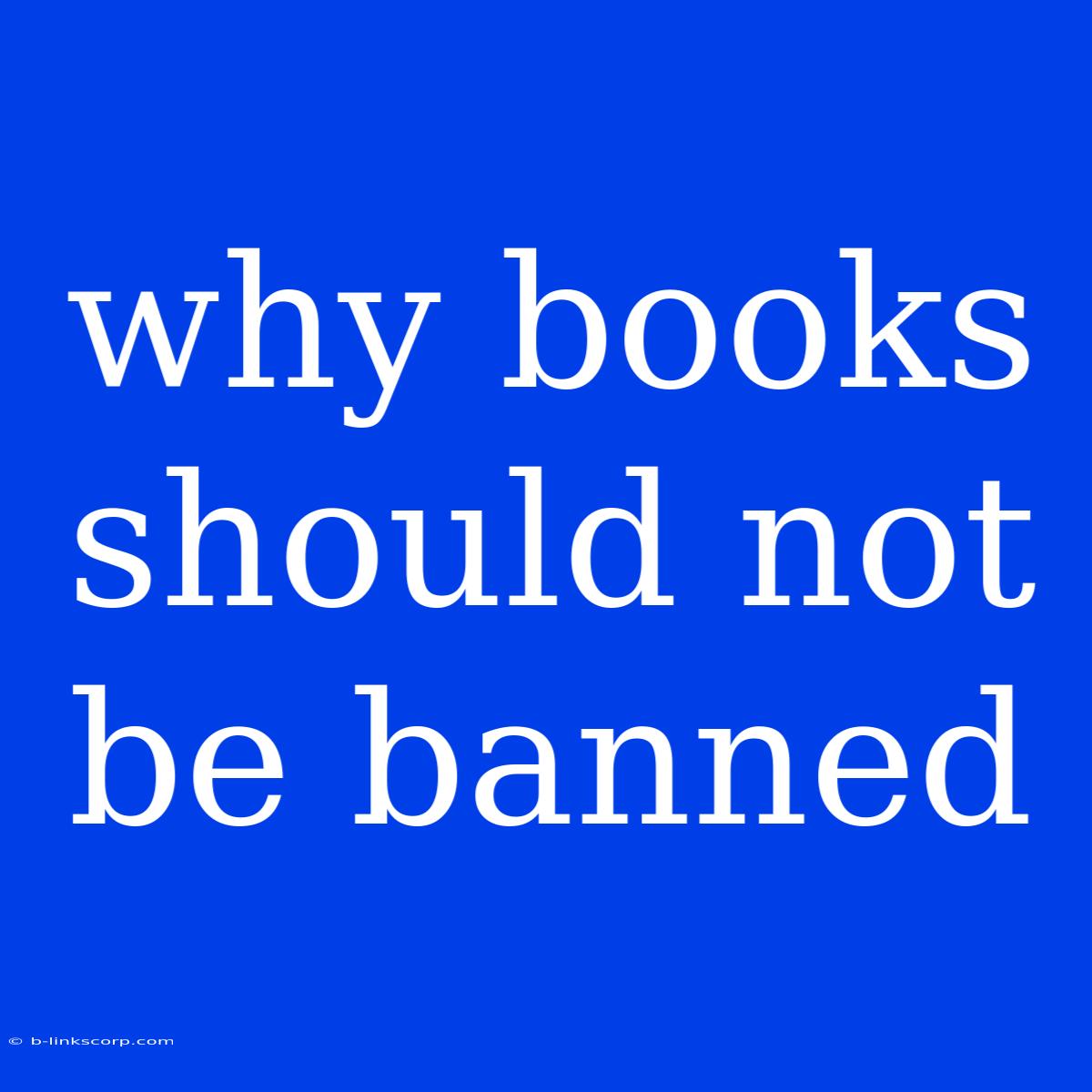Why Books Should Not Be Banned
Books have always been a source of knowledge, entertainment, and inspiration. They have the power to transport us to different worlds, introduce us to new ideas, and help us understand ourselves and the world around us better. Despite this, there are still efforts to ban books, often based on controversial content, religious beliefs, political ideologies, or personal sensitivities. However, banning books is a dangerous and misguided practice that ultimately limits freedom of thought, expression, and access to information.
Here are some compelling reasons why banning books is harmful and should be opposed:
1. Censorship Stifles Freedom of Thought and Expression:
At its core, banning books is censorship. It attempts to control what people read and think, limiting their access to diverse perspectives and challenging ideas. This directly undermines the fundamental human right to freedom of expression, which is essential for a healthy and vibrant society.
2. Banning Books Does Not Erase Ideas:
Trying to erase ideas by banning books is futile. Instead, it often fuels curiosity and encourages people to seek out the banned material even more. Banning a book can even turn it into a symbol of resistance and rebellion, attracting more attention than it would have otherwise received.
3. Banning Books Creates a Culture of Fear and Self-Censorship:
When books are banned, it creates a climate of fear and self-censorship. Authors may become hesitant to write about sensitive topics, publishers may be reluctant to publish controversial works, and readers may feel intimidated to explore challenging ideas. This chills intellectual discourse and hinders the advancement of knowledge.
4. Books Provide Different Perspectives and Challenge Preconceived Notions:
Books expose us to different cultures, beliefs, and viewpoints. They allow us to see the world through different lenses, challenge our own biases, and develop critical thinking skills. Banning books limits our ability to engage with diverse perspectives and prevents us from expanding our understanding of the world.
5. Books Can Spark Difficult Conversations:
Books often raise challenging questions and spark difficult conversations. They can help us grapple with complex issues, explore different sides of arguments, and learn from the experiences of others. Banning books prevents us from having these crucial conversations and stifles the growth that comes from engaging with challenging ideas.
6. Banning Books is a Form of Discrimination:
When books are banned based on their content, it often reflects discriminatory attitudes towards certain groups or individuals. Banning books based on race, religion, gender, or sexual orientation perpetuates harmful stereotypes and limits the opportunities for marginalized groups to share their stories and perspectives.
In conclusion, banning books is a harmful practice that undermines freedom of thought and expression, stifles intellectual discourse, and creates a culture of fear and self-censorship. It is essential to champion the freedom to read and explore diverse ideas, as this is vital for a healthy and informed society. Let's work together to ensure that books remain accessible to everyone and that our right to read is never compromised.

